Mike Matei of Cinemassacre has created a video explaining the significance of Carl Barks’s best work, which is embedded below.
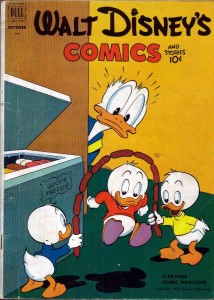 I wrote most of the script Mike is reading, when the original idea was to make this a video about the top twenty stories Barks wrote and drew for Walt Disney’s Comics & Stories (which I chose, at Mike’s insistance). I don’t have any qualms with the selection he judiciously edited from my writing, although I’m certainly disappointed the hypno-gun story from 1952 wasn’t included. No complaints though. I think the video is successful in what we set out to do: convey in layman’s terms why Barks is great, a real rarity considering so many Barks scholars are obsessed with academia (re: seeing things that aren’t there).
I wrote most of the script Mike is reading, when the original idea was to make this a video about the top twenty stories Barks wrote and drew for Walt Disney’s Comics & Stories (which I chose, at Mike’s insistance). I don’t have any qualms with the selection he judiciously edited from my writing, although I’m certainly disappointed the hypno-gun story from 1952 wasn’t included. No complaints though. I think the video is successful in what we set out to do: convey in layman’s terms why Barks is great, a real rarity considering so many Barks scholars are obsessed with academia (re: seeing things that aren’t there).
Below is that story as it originally appeared in Walt Disney’s Comics & Stories #145 (October 1952). Its root idea, that Donald Duck is so gullible, he’s the only person on earth that the hypno-gun works on, is a shining example of what the man did best: Barks doesn’t need extravagance in drawings and dialog to hammer home the humanity of his characters, nor their complexities. Whereas so many superhero comic book writers and artists express their intricacies so loudly that the stories just read as noise, the ducks in Barks’s world are clearly defined as real people in an unpretentious, simplistic fashion. His stories rank chief among comics that are equally embraceable by kids and adults alike as a result. I’m not sure if it is my absolute favorite Barks story (a decision as difficult as picking your favorite child), but it’s certainly in the top two or three.

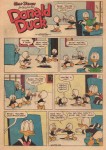
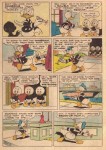
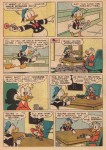

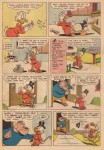
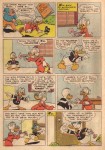
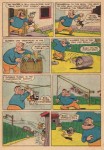
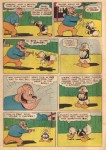
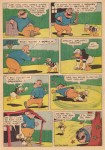
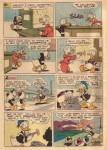
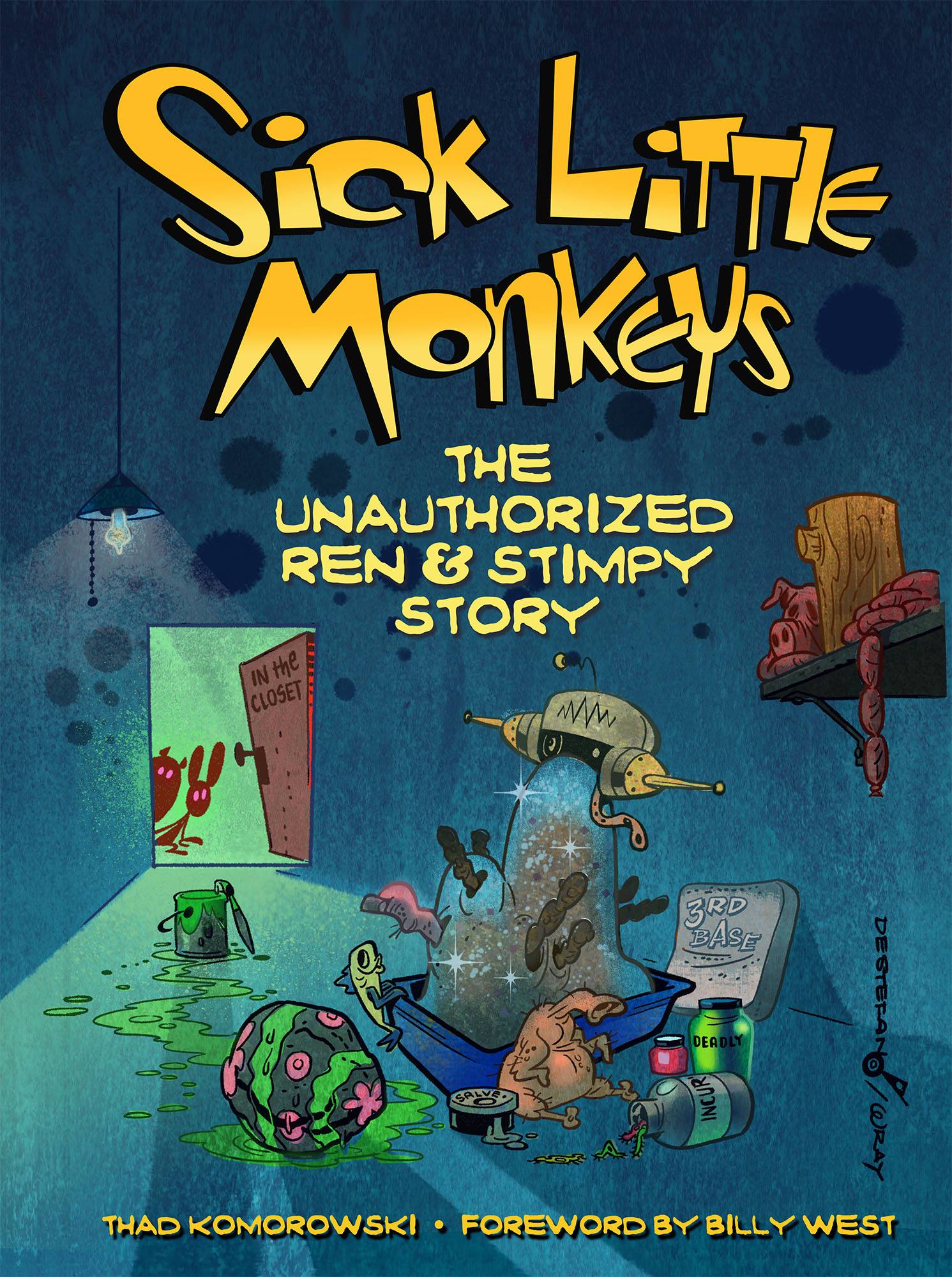
I guess it’s easy to see things that aren’t there. At one point I thought that Duck Dodgers in the 24th and a 1/2 century was a social commentary against the Cold War; especially given the ending.
I suppose the taking of the moral of Barks’ story to be a foreshadowing of the 2008 financial crisis, capped with the nickel wisdom of ‘perhaps if the world had read more Barks, it would be a better place’ (ugh!) would apply to your idea of “seeing things that are not there.” Failing to see the symbolic values of narratives beyond the intentionality of their authors suggests to me a lack of a sense of nuance and erudition, than a defensible critical common sense-ism.
Barks writing is full of more or less pat middle-class myths veering on the side of moderate conservatism. His treatment of the distribution of wealth in the cyclone story, 17+ minutes in, that ultimately it is better to concentrate wealth at the disposal of a single individual than to distribute it equably, (for such, in the story, leads to complete socio-economic breakdown) proves him a poster child for trickle down economics.
You can’t limit the peregrinations of the idea.
Say, the video is down! Any chance of seeing it now?